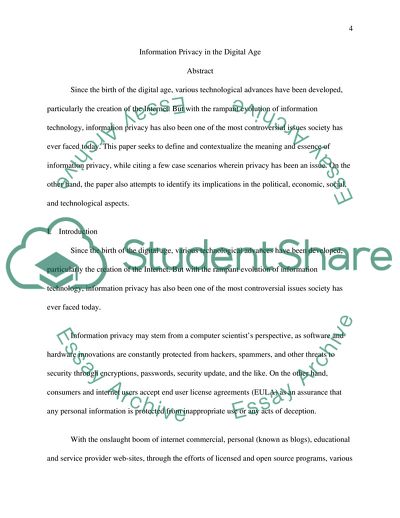Cite this document
(Information Privacy in the Digital Age Term Paper, n.d.)
Information Privacy in the Digital Age Term Paper. https://studentshare.org/information-technology/1705199-computer-science-term-paper
Information Privacy in the Digital Age Term Paper. https://studentshare.org/information-technology/1705199-computer-science-term-paper
(Information Privacy in the Digital Age Term Paper)
Information Privacy in the Digital Age Term Paper. https://studentshare.org/information-technology/1705199-computer-science-term-paper.
Information Privacy in the Digital Age Term Paper. https://studentshare.org/information-technology/1705199-computer-science-term-paper.
“Information Privacy in the Digital Age Term Paper”. https://studentshare.org/information-technology/1705199-computer-science-term-paper.


